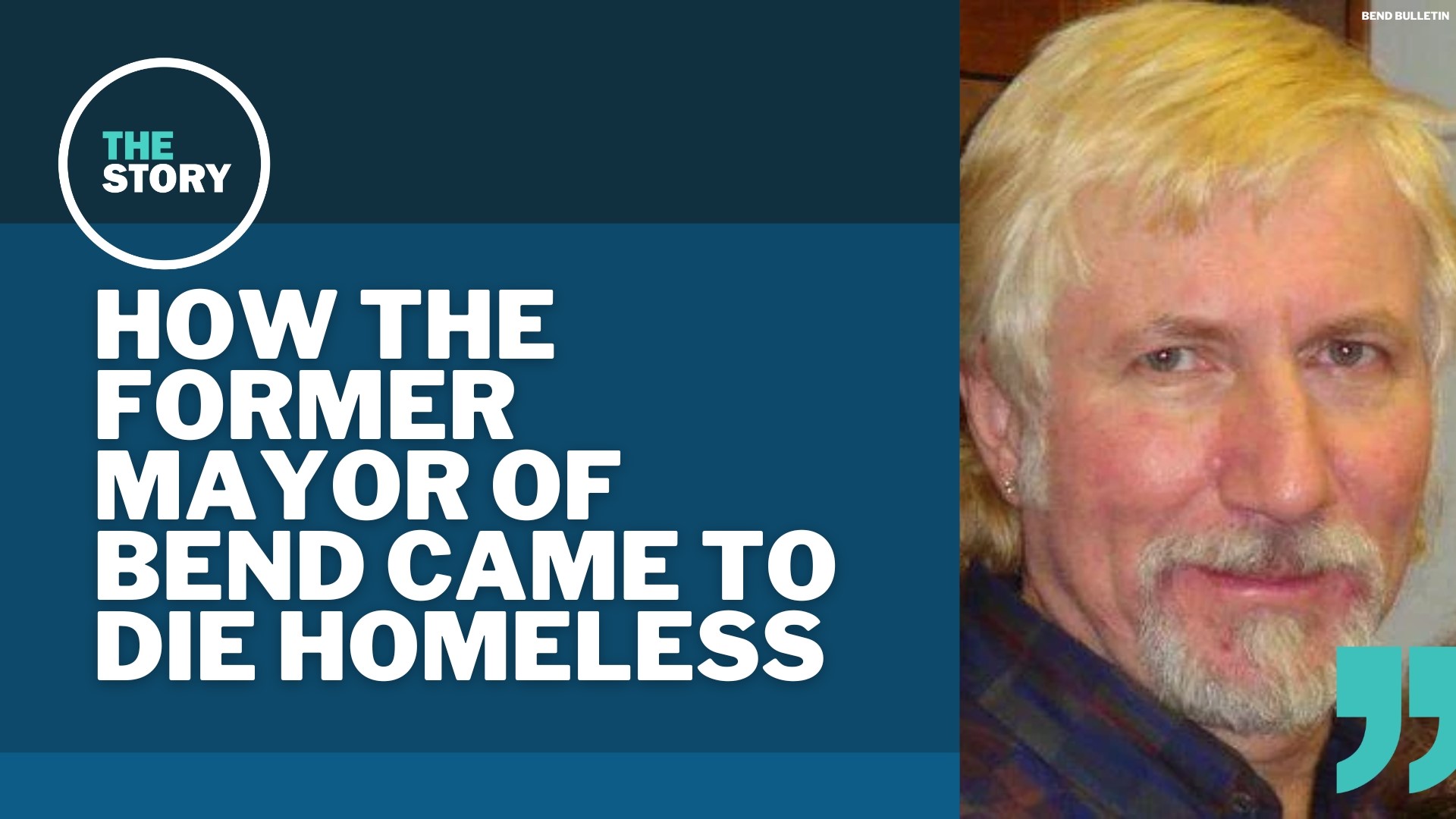BEND, Ore. — Throughout the course of 2022, the Oregon Health Authority reports that 522 died while homeless. Beyond those statistics, it can be difficult to learn much about the individual people who die on the streets — many lack vital records or strong connections to family or friends.
But late last year, a reporter at the Bend Bulletin was covering an emergency shelter opened during particularly cold temperatures when he met someone who was once a prominent figure in the central Oregon city.
"Right around Christmas I was reporting in a shelter about people who were taking shelter from the conditions, and I just bumped into this guy and he said, 'Hey, I was actually the mayor,'" remembered reporter Bryce Dole, "and he had been living in that shelter for a few months at that point."
That man was Craig Coyner III. In 1984, Coyner was indeed the mayor of Bend, and he served on the city council for more than a decade. He died earlier this year — still homeless — and Dole decided to contact Coyner's family and friends to find out what had brought the former mayor to this end.
Coyner was a Marine Corps vet who served stateside during the Vietnam War. He grew up in Bend, born to a very prominent central Oregon family.
"He was a defense attorney and a prosecutor for decades. He's somebody who was heavily involved in this community," said Dole. "The Coyner family is fairly well known in Deschutes County. They were pretty involved in the development and ownership of a lot of the buildings around town.
"There's two avenues in Redmond that are named after them called Coyner Ave. There's a point, you know, kind of a prominent place near downtown Bend that was known as Coyner Point for a very long time. And there's also a trail that's still here called Coyner. So basically, if you're a longtime local in Bend, you likely know or a lot of folks do know the Coyner family."
Despite those advantages, Craig Coyner III struggled with mental illness throughout his life. It came to a head about two decades ago. Coyner had been a lawyer, but he lost his license after a series of ethics violations. His wife died in 2008. Later, he lost his home.
"Kind of in the mid-2000s, Craig had stated publicly after he'd been disciplined by the Oregon Supreme Court that he had been struggling with mental illness ... he'd been diagnosed with bipolar disorder, and he had been self-medicating with alcohol," Dole said. "He struggled with substance abuse a lot throughout his life, and this is according to his family members, his friends, his colleagues, all of whom I interviewed for this story, as well as his daughter.
"So he proceeded to have his license suspended by the Oregon State Bar and never had it reinstated. And then, around the housing market crash, was trying to fight for other people who were losing their homes at that time and at that exact same time he was actually struggling to pay his own bills. And over the next about, a little bit less than a decade, he fought a mortgage company trying to keep that home, and he ultimately he lost.
"So it was kind of the culmination of several different struggles that he'd been experiencing for a lot of his life. And while he was experiencing homelessness at the end of his life, a lot of his family members didn't really know where where he was. He'd kind of drifted out of their lives."
In January, Coyner was taken to the hospital after getting frostbite on his feet. Doctors amputated one of his toes, but he ultimately died of a stroke while going through withdrawal from substances.
His family told Dole that they'd tried to find him over the years, but they didn't have much success in keeping him in their lives. Regardless, they think his story deserves to be told.
"They really believe that he deserves to be remembered," Dole said. "He was an extremely flawed man. He was very, very complicated. He was arrested many times. He was disciplined by the bar many times.
"He drifted or pushed away the people who loved him, including his children, and he did live, according to his sister, with regret because of some of the mistakes that he made — most notably that he wasn't really in his children's life. But at the same time, at least one of his daughters, you know, had some time at the end of his life to be there with him and to try and kind of understand him."
Dole said that many people who read his story reached out to say that it was similar to what had happened with their one loved ones, people who struggled with mental illness, with addiction or who otherwise ended up homeless.
"It was relatable to people. But I think the big overarching theme that I heard from a lot of people was that this story shows that something like this can happen to anybody," Dole said. "A lot of people look at people experiencing homelessness and think that it's just, you know, their decision and that the person screwed up somehow and that it's just ... and while I think Mr. Coyner did make a lot of mistakes in his life, I think a lot of tragedy also happened to him and I mean his life was the result of many tragic circumstances as well."
At a Wednesday night city council meeting in Bend, current Mayor Melanie Keblar plans to make a statement in remembrance of former Mayor Craig Coyner III. You can read Bryce Dole's full story about Coyner's life on the Bend Bulletin's website.

